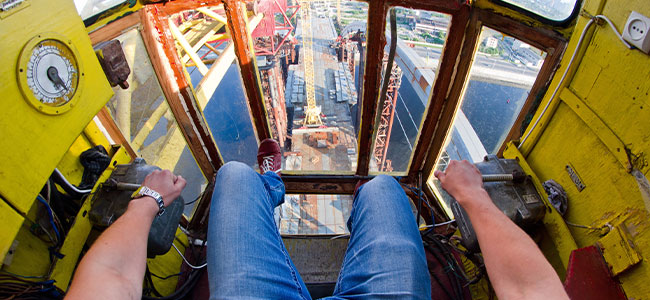
NSC Report Names Heat Stress, Fatigue Among Biggest Safety Risks for Crane Industry
The NSC collaborated with the NCCCO Foundation for this latest effort in its ongoing Work to Zero initiative.
- By Robert Yaniz Jr.
- Apr 10, 2024
The National Safety Council (NSC), in collaboration with the National Commission for the Certification of Crane Operators (NCCCO) Foundation, has released a new report on common safety risks within the crane industry as part of its Work to Zero initiative.
According to a recent release, the report is based on an NCCCO Foundation survey of nearly 2,200 respondents and reveals the most frequent hazardous scenarios—and those responsible for 30 percent of non-roadway workplace deaths in 2020—as working at height, vehicle-pedestrian interactions, and the loading and unloading of materials.
Titled “Understanding the Current State of Safety Hazards in the Crane Industry,” the report identifies heat stress and fatigue as predominant risks contributing to workplace injuries. Despite 80 percent of participants believing they have access to safety training, lack of proper training comprised 7 percent of personal injuries and 8 percent of on-site injuries. Falls from height and struck-by hazards are the most common causes of injuries.
Depending on the type of technology, between 1 percent and 13 percent of respondents said they are using safety technology—such as drones, proximity sensors and vital sign wearables—on the job site. Data privacy concerns were cited as the biggest obstacle to more widespread adoption of current and emerging technological safety solutions.
Supported by the McElhattan Foundation, the Work to Zero initiative aims to eliminate workplace fatalities through technology. More information is on the NSC website.
About the Author
Robert Yaniz Jr. is the former Content Editor of Occupational Health & Safety.